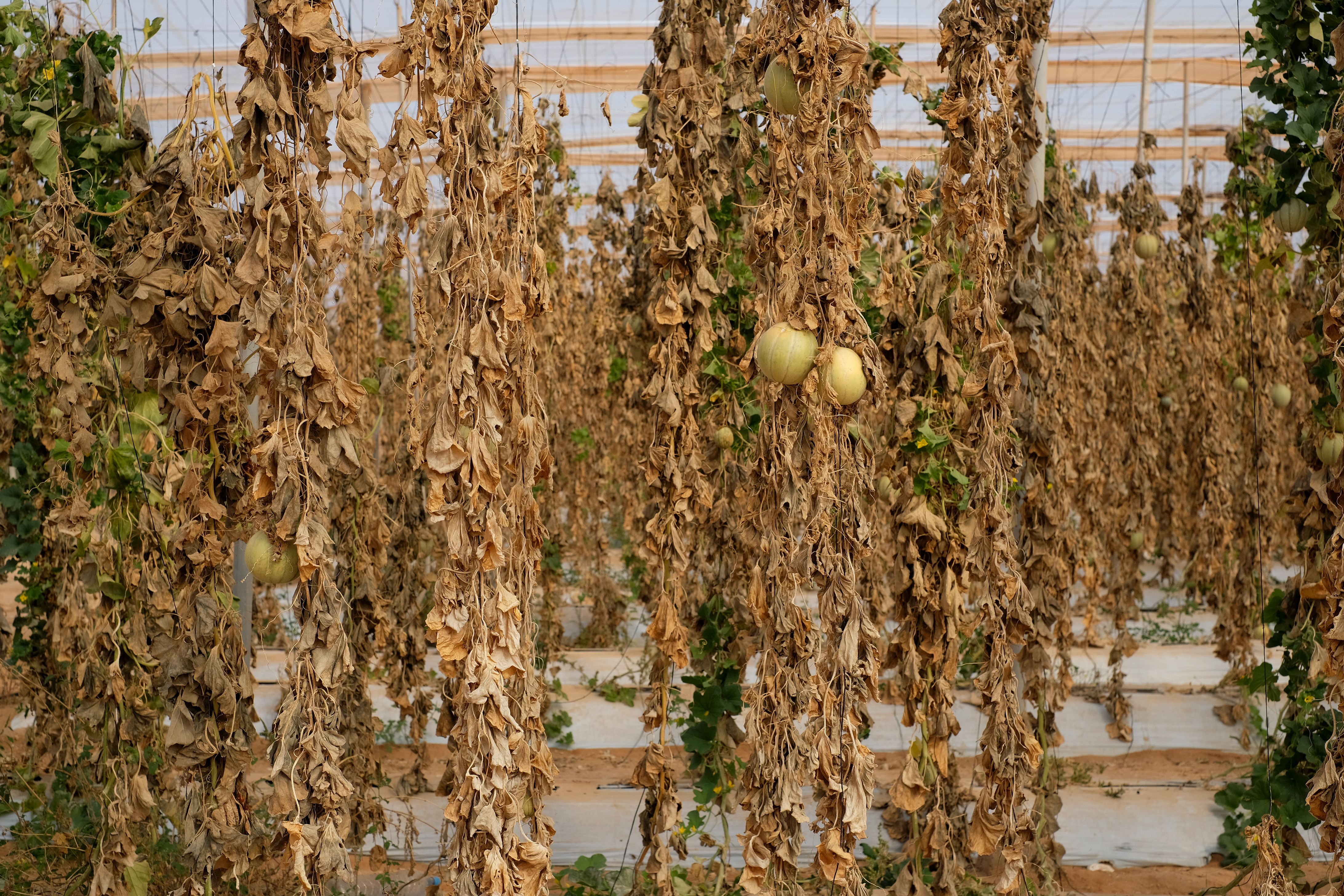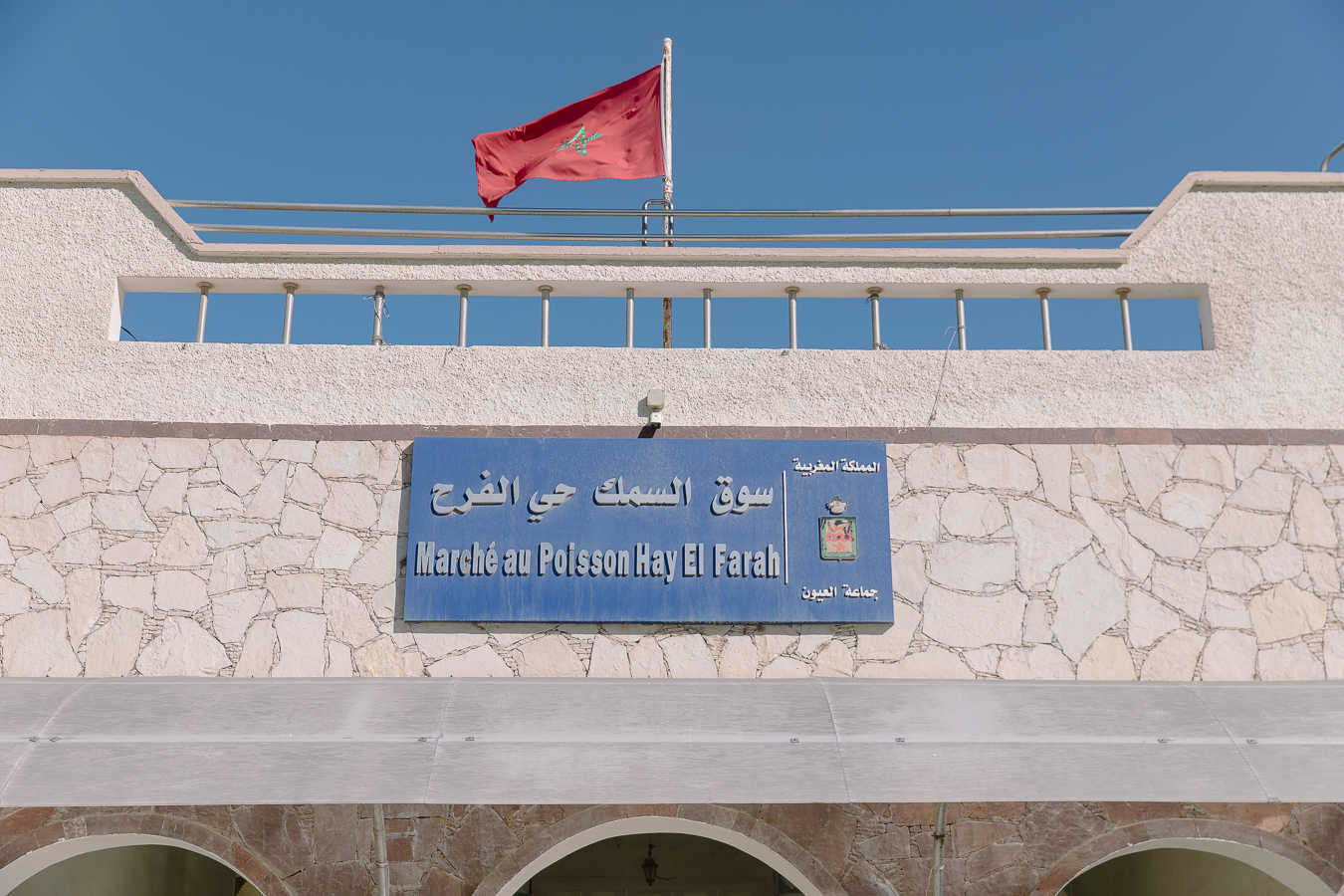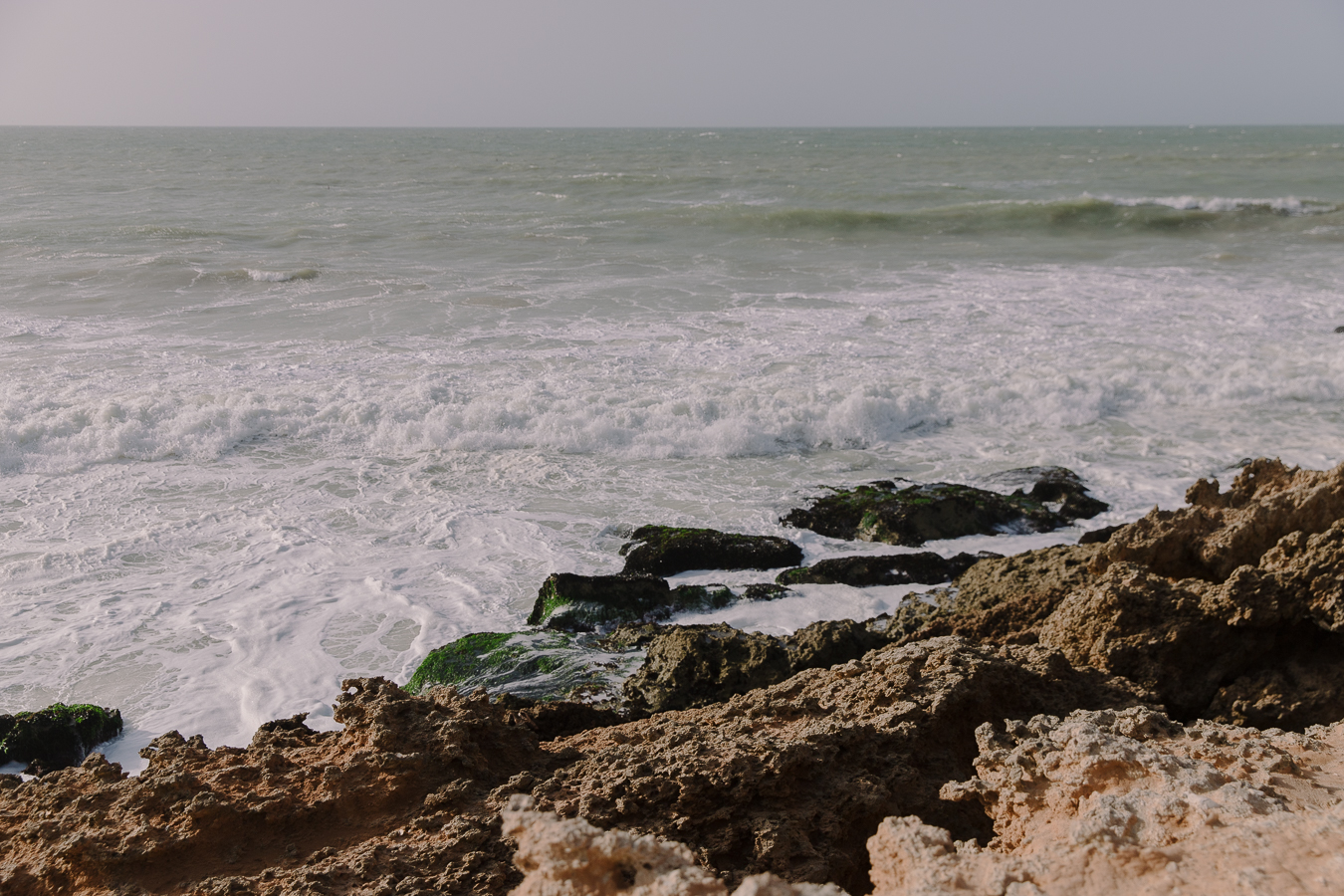
The certification company LSQA has ceased all activity in Western Sahara, where it had previously certified Moroccan producers operating in the occupied territory.
Photo: @ElliLorz, plantation in Dakhla.
“We inform you that LSQA has decided to suspend its operations in Western Sahara, [....]. LSQA, in alignment with international norms, considers that it is not possible to proceed with certification in Sahrawi territory without complying with the requirements of the scheme issued by the Sahrawi authorities, providing the necessary guarantees to be able to issue the certification”, the company wrote in a letter to the Saharawi Embassy in Montevideo in July. Western Sahara Resource Watch (WSRW) has obtained the letter.
In March last year, LSQA had certified the Moroccan agribusiness firm FMI Nabih Agricole under GLOBALG.A.P’s so-called Integrated Farm Assurance Standard which focuses on good agricultural practice, traceability, hygiene controls and food safety.
In both GLOBALG.A.P’s registry and on the certificate itself, the farm was listed as being located in Morocco, despite in fact being situated inside occupied Western Sahara. The company has reported exports of tomatoes and melons to Switzerland, Germany, the EU, the UK, Morocco and Russia.
WSRW has previously documented GLOBALG.A.P.’s role in certifying agribusiness operations established by the Moroccan state in the territory. GLOBALG.A.P. has not responded to most of WSRW’s questions regarding its continued certification and misrepresentation of farms in Western Sahara.
The mislabeling of country origin in GLOBALG.A.P’s registry means that European retailers relying on the system may inadvertently misrepresent the provenance of products, potentially engaging in food fraud.
LSQA is jointly owned: 50% by Uruguay’s Technological Laboratory and 50% by the Austrian firm Quality Austria.
In July, WSRW reported that Quality Austria itself is involved in certifications for a seafood exporter operating in the territory. Photographs of Quality Austria staff visiting the occupied zone have been posted by a Moroccan exporter.
Both LSQA and Quality Austria are members of IQNet, the International Certification Network, whose logos also appear on certificates issued to Moroccan companies in Western Sahara. Neither Quality Austria nor IQNet responded to WSRW’s questions.
WSRW wrote to LSQA on 29 November 2024.
In its reply of 27 January 2025, LSQA stated that it had based its certification decision on information provided by the company requesting certification, and in accordance with the framework defined by GLOBALG.A.P.
“in accordance with the guidelines defined by GLOBALGAP, institution issuing the certification guidelines and whose competence is to prove the suitability of the respective certification bodies for the application of such guidelines. For this purpose, LSQA has based its actions on the affidavits issued by the client requesting certification prior to the start of the audit process, being the responsibility of the client to ensure the veracity of what is stated in all aspects, including its corporate location in accordance with the formal documentation of its incorporation. Additionally, LSQA has conducted investigation regarding the company’s formal documentation relevant to the process, resulting in it being issued by Moroccan authorities. Finally, it should be noted that LSQA remains committed to the standards defined by GLOBALGAP and is available to adapt the procedures applied if this is provided for by GLOBALGAP.”
Since then, LSQA has reconsidered.
“The situation in Western Sahara exposes a structural flaw in the certification system”, Karin Scheele of Western Sahara Resource Watch in Austria stated.
“Standards designed to assure trust are being used in a context where the rightful owners of the land have no say. LSQA stepped back once the implications became clear. The same reflection is now needed from GLOBALG.A.P, Quality Austria and IQNet”, Scheele said.
This is not the first certification body to withdraw from the territory. In 2020, the Norwegian firm DNV GL announced that it would cease activities in Western Sahara and not return.
Since you're here....
WSRW’s work is being read and used more than ever. We work totally independently and to a large extent voluntarily. Our work takes time, dedication and diligence. But we do it because we believe it matters – and we hope you do too. We look for more monthly donors to support our work. If you'd like to contribute to our work – 3€, 5€, 8€ monthly… what you can spare – the future of WSRW would be much more secure. You can set up a monthly donation to WSRW quickly here.
New report: Certified occupation
International certification standards embellish Morocco’s controversial trade with fisheries and agricultural products in occupied Western Sahara, new report documents.
Certification giant SGS points fingers elsewhere
SGS blames everyone else for mistakes on MarinTrust certificates it had issued to Moroccan companies in occupied Western Sahara.
GMP+ does not check if “sustainable” fish is legally caught
The world’s largest certification scheme for “safe and sustainable animal feed” does not check whether its certified fish feed companies source from illegal fisheries in occupied Western Sahara, where catches violate the Saharawi people’s right to self-determination.
ASC withdraws from occupied Western Sahara
Certification scheme ends involvement with Azura Group and declares that no future certifications will be granted to companies in the occupied territory.



